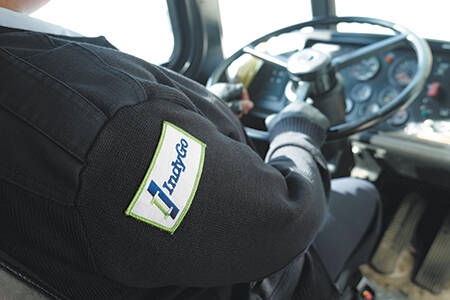After hearing more than two hours of testimony, the Senate Appropriations Committee voted 7-5, mostly along party lines, to advance a bill that would prohibit IndyGo from using dedicated lanes for the Blue Line project, a measure the public transit agency says will effectively kill the project.
Sen. Aaron Freeman, a Republican from Marion County and the author of Senate Bill 52, filed similar bills in previous sessions that made it out of the Senate chamber but failed to gain House approval.
Prior to voting to advance the bill to the Senate floor, the Republican-controlled committee voted 7-5 to approve an amendment that went a step further and specified that the Blue Line must use only lanes shared with other traffic and clarified that the restrictions would not apply to the Red or Purple Lines. Sen. Eric Bassler, R-Washington, was the only Republican to vote against the bill.
About 10 people signed up to speak in support of the legislation, while more than 30 people signed up against it.
Supporters of the bill, many of which were business owners along Washington Street in Irvington, say their establishments would lose foot traffic during the long construction period, while others expressed concern that the lane restriction would make it difficult for semitrucks to make deliveries and customers to access their business.
They said they’ve implored IndyGo to explore other measures to slow traffic that wouldn’t negatively impact their business.
“We feel like IndyGo has really come in and not done their due diligence,” said Lisa Bennett, owner of Black Sheep Gifts on East Washington Street in Irvington. “They’ve not answered a lot of the business owners’ questions. We just feel that this lane coming through in what is the most narrow corridor of our city…is not going to be anything in the long run that is going to be positive for our community.”

Opponents of Freeman’s legislation included other business owners and residents along or near the affected route, public transit advocates, city officials and Cassandra Crutchfield, the mother of a young girl who was killed in 2022 by a speeding car along Washington Street.
Jennifer Pyrz, interim CEO of IndyGo, said shared lanes force buses to compete with cars, hindering the ability of the bus service to provide rapid transit and making it unsafe for riders and motorists.
By pursuing dedicated lanes, she said, IndyGo can get increased funding for drainage, sidewalk, safety and other infrastructure improvements along Washington Street.
Further delays would put the project at risk of losing federal funding, she added.
“We are too far along to go backwards,” Pyrz told the committee. “In good conscience, we cannot waste the $14 million we put into this design. We would then be turning down $150 million in federal funding for the Blue Line, which is leveraged to make significant improvements on Washington Street.”
Construction on the Blue Line, which carries an estimated price tag of $370 million, would replace Route 8— the second-most traveled route behind the Red Line—and run about 25 miles east to west along Washington Street between Cumberland and the Indianapolis International Airport, using I-70 west of Holt Road.
Should the bill pass the Senate chamber, it will move to the House, where House Speaker Todd Huston, R-Fishers, has indicated it has support.
If the Blue Line continues to move forward, there may be some hope for businesses looking for relief.
Taylor Hughes, vice president of policy and strategy for the Indy Chamber, said the nonprofit will be creating a program to provide business disruption loans to establishments along the Blue Line if their operations are negatively impacted by construction.
“We have some capital now to get started and will be actively seeking more,” Hughes posted on X on Thursday.





